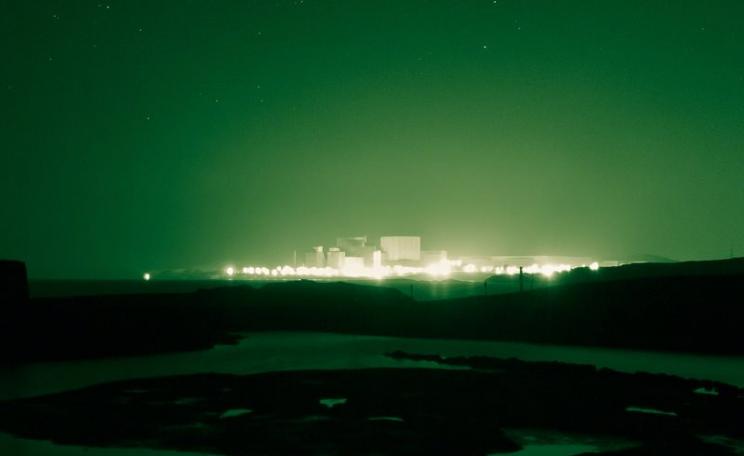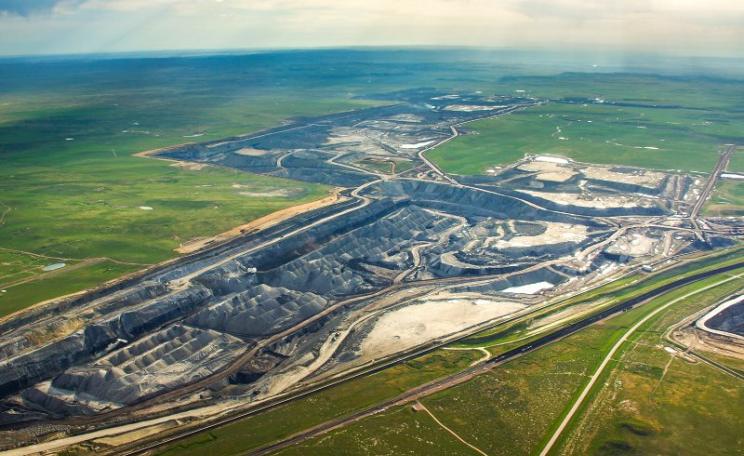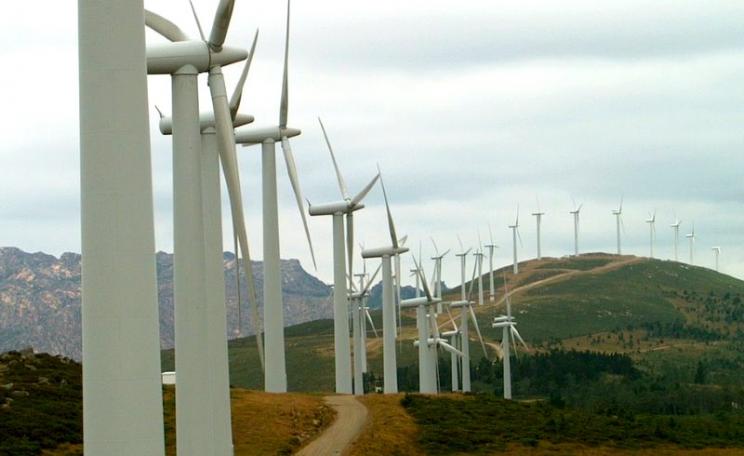A recent residential development in Germany with all-solar PV roofing. Soon the whole world will be doing this - and probably adding solar walls to the mix. Source: GreenWorld.
Higher electricity rates for nuclear power will only encourage faster adoption of rooftop solar.
Goldman Sachs says declining prices of solar plus battery storage means that by 2033 homeowners will no longer need to be on the grid in US. And that will happen sooner in expensive electricity states like New York and California.
This projection tracks well with the recent Rocky Mountain Institute report (Nuclear Newsreel, February 25, 2014) on grid defection. As RMI subsequently pointed out (The utility death spiral, stupid utilities and grid defection) grid defection is not necessarily a good thing.
But homeowners need not actually disconnect from the larger grid to take advantage of the plunging prices of rooftop solar and the upcoming similar price plunges for battery storage expected from Tesla's massive battery production plant being planned.
Big power stations - our future mausoleums
That's the good news for utilities. The bad news for them - and the good news for the climate - is that as homes and businesses increasingly become self-powered and even able to send excess power back to the grid, the need for large 'baseload' nuclear and fossil fuel plants will become less and less.
Utilities planning expansion of large reactors (e.g. Vogtle and Summer) and continued operation of increasingly-expensive aging reactors will be in trouble in this new marketplace.
And the odds that reactors that already have obtained 20-year license renewals will actually operate for those extended periods are dwindling. License renewals are pieces of paper, they're not assurance of economic operation - if there is no market for the electricity they're generating, utilities won't run them.
It's the market, stupid
And since we're talking odds here, the idea now being bounced around the NRC, DOE and some in the nuclear industry of further license extensions to allow 80-year operation of reactors increasingly appears to be a genuinely silly concept.
This is what is behind efforts by backward utilities like Entergy and Exelon that are heavily invested in nuclear reactors to rig electricity rates to favor nuclear power (Activists pay attention: the nuclear industry wants to rig your rates).
They know the long-term trends are running against them, and even in the short-term their reactors are failing to compete in the new marketplace. That inability to compete is only going to accelerate.
It's one thing to be unable to compete with alternative generation like natural gas and wind, which is their current problem. It's quite another to be unable to compete with tens of millions of homeowners and businesses putting up solar panels on their roofs and backing up that power with battery storage.
Higher electricity rates for nuclear power will only encourage faster adoption of rooftop solar.
The more grid electricity costs, the more customers will cut and run
No amount of electricity price-rigging can compensate for that - in fact, higher electricity rates for nuclear power will only encourage faster adoption of rooftop solar.
Most of those customers will stay connected to the grid to ensure stability and greater reliability, but they won't be buying much power, certainly not the levels needed to keep behemoth reactors operating.
A different kind of effort by nuclear utilities to prevent the inevitable can be seen in California, where SolarCity has accused Pacific Gas & Electric (PG&E) of blocking a pilot program of solar plus battery storage installations.
That approach is even less likely to work over even the short-term than the efforts of Exelon and Entergy. But PG&E is desperate to avoid shutdown of its Diablo Canyon reactors, at least before their initial licenses expire in the next decade, so it's trying whatever it can.
License extension of those reactors seems increasingly unlikely, given the level of opposition to Diablo Canyon in California and the unfavorable long-term prospects for nuclear in the state. An early shutdown now appears far more probable than 20 more years of operation.
But be ready for a fight
But even if a cleaner and cheaper energy future powered increasingly by renewable distributed generation sources appears increasingly inevitable, the efforts by nuclear utilities to delay that future will be painful-economically, potential for nuclear accidents, unnecessary radioactive waste generation-if successful.
That's why activists - and just concerned people everywhere - need to stay on top of these developments and take action to oppose the utilities when appropriate.
If you're not already on NIRS e-mail alert list, join now to do just that.
Michael Mariotte writes for GreenWorld, a publication of Nuclear Information and Resource Service.
This article was originally published on GreenWorld.





